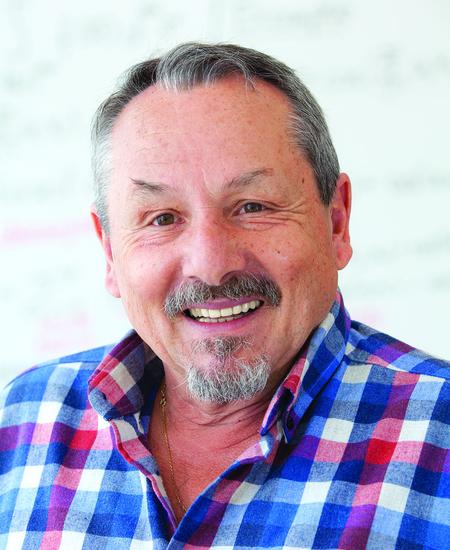

1990 to present: Professor, Department of Computer Science, University of Kentucky.
Spring 2002: Visiting Researcher, Department of Mathematics, Hong Kong Baptist University
1993 to 2006: Director of Graduate Studies, Department of Computer Science, University of Kentucky.
1987 to 1990: Associate Professor, Department of Computer Science, University of Kentucky
1985 to 1987: Associate Professor, Computer Science Department, Columbia University.
1983 to 1985: Assistant Professor, Computer Science Department, Columbia University.
1982 to 1983: Visiting Assistant Professor, Computer Science Department, Columbia University
1980 to 1982: Assistant Professor, Department of Mathematics, Computer Science and Mechanics, University of Warsaw.
1978 to 1979: Visiting Scholar, Computer Science Department, Carnegie-Mellon University.
Ph.D. Computer Science and Mathematics, University of Warsaw, 1980.
M.Sc. Computer Science, University of Warsaw, 1977.
Ask computer science professor Greg Wasilkowski what he does for fun and he quickly answers, “Mathematics.”
Ask him what he is constantly thinking about and he replies, “Mathematics.”
Ask him what he likes to read and he says, “Poetry.”
Oh, that’s different. Why?
“Because it is like mathematics.”
An expert in computational mathematics and numerical analysis, Greg’s primary field of research is called computational complexity.
“Classical methods of numerical analysis can handle functions with no more than three or four variables. But there is a host of problems in engineering, physics, chemistry, financial mathematics and other fields that have infinitely many variables,” Greg explains. “These cannot be solved on a piece of paper. They have to be solved primarily by using computers. My colleagues and I have been quite fortunate to find methods that can easily handle multi-dimensional problems, whereas the classical methods collapse.”
Greg has discovered numerous ways to help students succeed in his classes and his enthusiasm for teaching is palpable.
“I want students to not be afraid. I want them to see that mathematics may be tough, but it can also be enjoyable. I want them to see the beauty and elegance that excites me. It’s not some dead area.”
Computational Complexity
Numerical Analysis